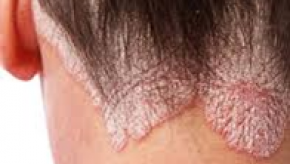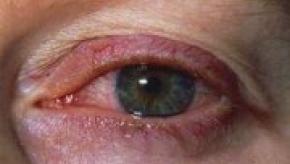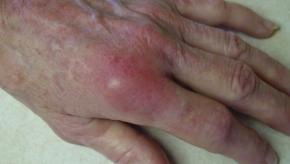Articles By Rachel Tate, DO

Millennial Doctors: Digital natives and the death of medicine as we know it
Millennial physicians comprise a wider, diverse population compared to prior generations, including an ever-increasing female physician community. It is estimated that by 2025, 75% of the work force will be millennials.1 This generation grew up in an era of participation trophies and structured childhood schedules, all while watching their predecessors sacrifice work/life balance due to persistent slashing of reimbursement. All of this sets the tone for change.
Read Article
2021 E/M Coding Update
I had the pleasure of attending the CSRO legislative update while at #ACR19 and wanted to shed some light on one hot topic, the E/M coding from CMS and the 2021 update.
Read Article
Life Hacks for People with Arthritis
Since moving to South Florida (also popularly known as "God's Waiting Room" by the locals). I've learned a lot more about Lipstick Rheumatology. This moniker was made famous by my friend and colleague, Dr. Kathryn Dao, who first wrote about the nuances of being a female with rheumatic disease. This blog focuses on three popular products recommended by my female patients that serve as life improving hacks.
Read Article
Millennial Medicine and Patient Care
While often seen as demanding, millennial patients have grown accustomed to having direct access to everything and everyone. They tend to be more involved in the clinical evaluation in the office, more concerned about the social aspects of the disease, and are more frustrated with the varying shades of gray in diagnoses and delayed treatment efficacy. What does this mean for you and your practice?
Read ArticleWhy Rheumatologists are the Happiest
It’s hard work wearing a crown. The dermatologists have been dethroned as Medscape’s happiest specialty after years at the top. While studies only detail that we are the most satisfied outside of work, I argue we are the happiest working, too. With an N of 1, here are my 10 observations.
Read Article
NK cells and a Potential Role in the Development of PsA vs PsC (Cutaneous Psoriasis)
Human NK cells express multiple receptors that interact with HLA class I molecules which, in turn, suppy peptides that bind HLA-E to form CD94/NKG2A NK receptor ligands.
Read Article
Factors That Contribute to Uveitis in SpA
We know that uveitis is an extra-articular manifestation of SpA but what remains unclear is if there are any factors that may play a role in the development of uveitis. One group sought to understand these issues.
Read Article
ICI-Induced Inflammatory Arthritis and Shared Epitope Alleles
Immune checkpoint inhibitors (ICI) have changed the hematology/oncology world. However, their AEs from a rheumatologic standpoint are still being evaluated and at this time, genetic risk factors for inflammatory arthritis due to ICI are not well understood. Dr. Cappelli et al evaluated a possible connection with HLA typing at their institution.
Read Article
The "No Show" Problem
As the healthcare landscape continues to change, “no show” rates will be an important factor for clinical practice. Implementing even one or two of the following proposed changes may help improve your no show rates.
Read Article
A Rheumatologist’s “Quality of Life”
I tell my patient’s that I empathize with them. I understand that they do not want a rheumatologic condition, nor do they want to take our medications and are disheartened when I tell them that we have no cures. But, if we flip that proverbial coin over, my goal for their care is to improve their quality of life.In rheumatology, we have many ways to accomplish that goal for our patients; from medication management to advocacy and support groups for patients and loved ones. But what are you doing at work or home to improve YOUR quality of life and the lives of those around you?
Read Article



